INSPIRE is a truly innovative cross-sectoral and national partnership at the forefront of STEM education in the Asia-Pacific region. Technologies reflect societies that build them and regard for diversity is crucial to avoiding continued disparities in the Asia-Pacific. INSPIRE educates diverse, inclusive teams for societal impact beyond what any classroom, university or country can achieve alone. A collaboration led by University of Victoria, with other educational institutions, industry mentors and community partners in Canada, Nepal and Singapore, the INSPIRE network empowers students in experiential-learning to tackle UN SDGs through 1. Cross-cultural learning at scale: students learn together in skill workshops across cultures and languages, reflect from experience within global network 2. Global expertise/local adaptability; international academic and industry mentors guide local projects 3. Program Sustainability from Impact to Advocacy; in a network effect, engaged students return as ambassadors for diversity and social change, and partners to belong to a growing network that shares values of diversity and impact INSPIRE excels by using research to inform its approach, to offer these unique opportunities comprehensively to students from early secondary to university, and to integrate values that cross cultures such as diversity, respect and reconciliation. Through projects such as online platforms to support Women facing homelessness in downtown Victoria, Language revitalization in Canadian Arctic, or Blood donations in Nepal’s rural areas, INSPIRE impacted more than 20 communities and 700 designers and users. Its realized impacts relate to: - Cultural change in tech education through research, collaborative-learning and community-engagement - STEM education leading to advocacy for inclusive technologies and societies - Community-engaged participation to societal change - Transforming lives in communities More information can be found at our site at inspireuvic.org

5th PLACE
Impactful Collaboration of the Year Award
INSPIRE: STEM For Social Impact
5th PLACE Impactful Collaboration of the Year Award
University of Victoria, INSPIRE Nepal, STEM for Social Impact - Nepal
"Global Expertise and Experiential-Learning: The Next Frontier in STEM Education for a Diverse World"
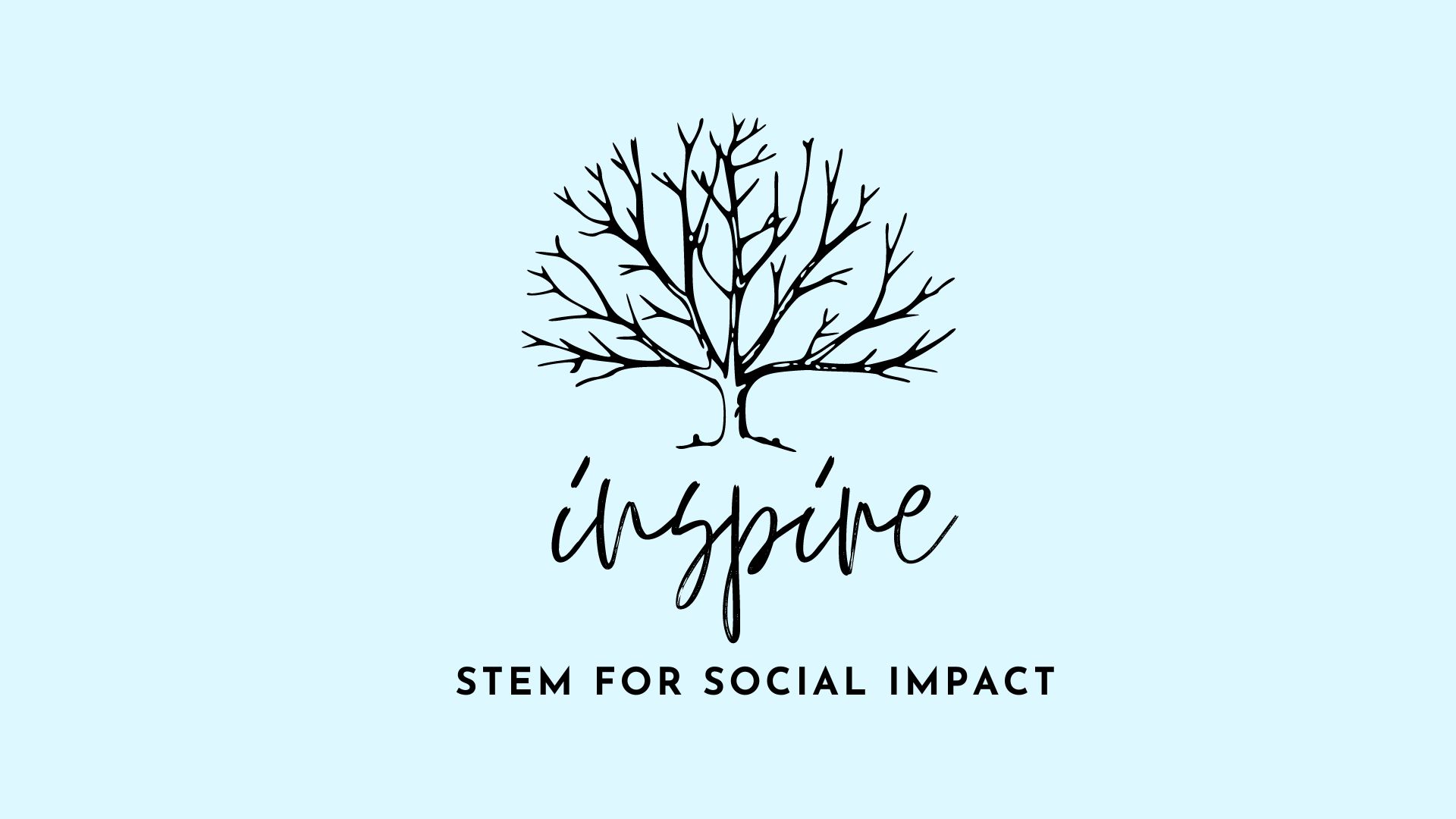
Engage on social media
Summary
Key People

Daniela Damian
INSPIRE Founder and Director. Professor of Software engineering and ECS-CAPI Chair in Inclusive Science, Technology and Engineering
Computer Science,
University of Victoria

Kezia Devathasan
INSIPRE Program Manager, Canada
Computer Science,
University of Victoria

Bachan Ghimire
INSIPRE Program Manager, Nepal
Independent consultant, Kathmandu

Mina Horfaar
Dean, Faculty of Engineering, INSPIRE Advisory Board
University of Victoria

VIctor Ramraj
Centre for Asia Pacific Initiatives (CAPI) Director, INSPIRE Advisory Board
University of Victoria

Chris Poskitt
INSPIRE Liaison, Singapore and Associate Professor
Singapore Management University

Marcellus Mindel
INSPIRE Advisory Board
Mindel Solutions
Acknowledgements
We warmly acknowledge all our network members for sharing our passion for diversity, learning and societal impact. In particular, our partner educational institutions and particularly the teachers in the collaborating schools, our industry sponsors for their generous sponsorships, our industry and academic mentors for their time to guide our student projects, and the University of Victoria and Kathmandu Codes for providing working spaces for our student projects in Canada and Nepal respectively. Learn more about these individual network members on our website at: https://inspireuvic.org/network/.
Images
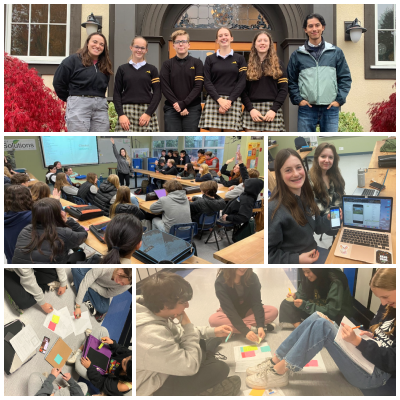
INSPIRE Ambassadors engage youth in middle and highschools in social good projects
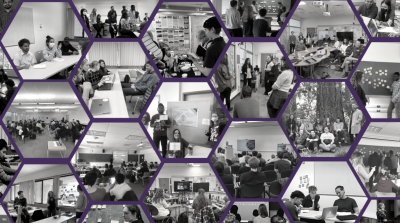
INSPIRE skill development workshops, student team project work and presentations, Canadian and Nepalese students (2022/23)
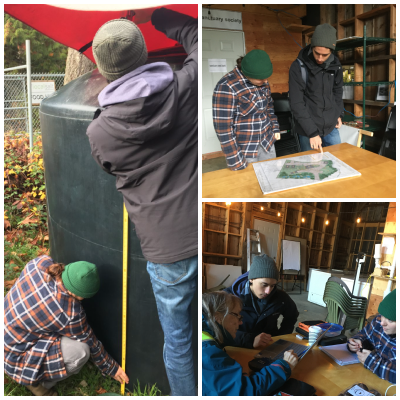
INSPIRE team designing a rainwater collection system with community garden organization partner
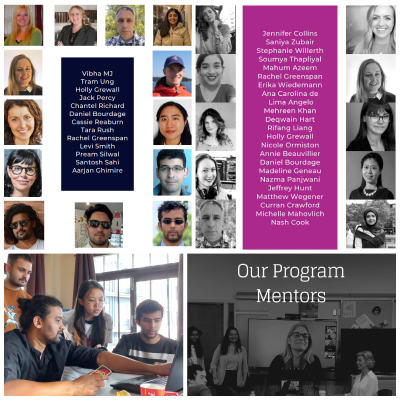
INSPIRE Industry Mentors at work or celebrating our student teams' successes
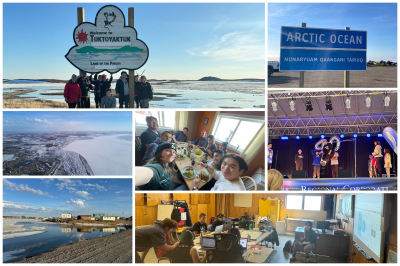
BridgingRoots project involving youth and community for language revitalization in remote Indigenous community at Canadian Artic
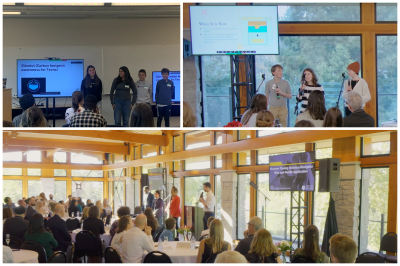
University and highschool students presenting at INSPIRE Conferences
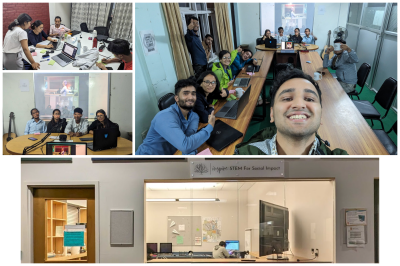
INSPIRE Offices in Nepal (top left), Canada (bottom) and cross-country engagement (middle and right)
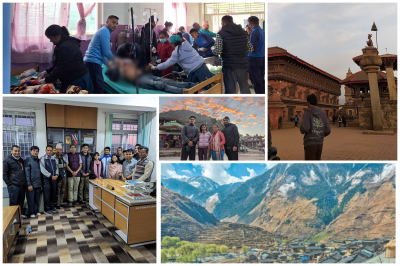
INSPIRE Nepal students work in remote communities, and meetings with hospital officials (e.g. BloodSynch project facilitating blood donations in emergencies)

INSPIRE Networking Social Events
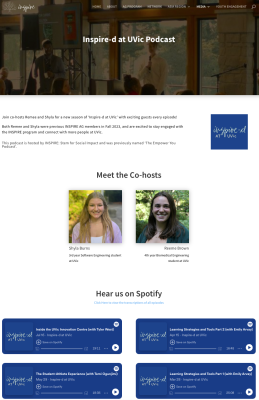
INSPIRE Podcast!
IMPACT STORY
Impacting lifes
“How do we teach a lost Indigenous language in a remote community in Canada’s Arctic with scarce resources in a way that respects community participatory action?” says M. Tomasino, Vice-Principal Mangilaluk School in Tuktoyaktuk. “The impact of residential schools in Canada is that our language and culture were disallowed in schools after 1871 leaving Indigenous people without the means to communicate their stories. Bridging Roots, the Inuvialuktun language revitalization tool co-designed by UVic students and our community allowed our students not only to learn the language, but to use their Indigenous voice to impact their community and the world. It had an additional transformative effect on two participating students who are now considering university and one girl who is continuing on the project through a highschool exchange program in Victoria”.
“As the industry mentor, I was grateful to see how the UVIc students learned about reconciliation and to humbly learn from Indigenous educators, youth, Elders who remember the language, and community members to create a software application that can be used by everyone from kindergarten students to tourists to relearn the language” says Tara Rush, Indigenous employee at Google.
“In Nepal we impacted communities in unprecedented ways” says Ghimire, tech leader in Kathmandu: “students travelled 24 hours through mountains for solutions to prevent blood transfusion crises, working at a hospital serving 500,000 people in East Rukkum, or through data analytics software, monitor and evaluate work across 1,500 rural communities in anti-human trafficking and early marriage, influencing policies and strategies”
LEARNINGS
Lessons learned
INSPIRE educates diverse students to develop technology for a diverse society. With a strategy of 1) engaging students in teams and in 2) projects that are meaningful for the society and 3) with support from a mentorship network that is cross-cultural and national, we learned success early on but it is challenging.
Lesson 1. Collaborative Learning together with Social Impact are an effective DEI strategy in STEM. Our empirical evaluations show that women and minorities in STEM are more likely to join and stay in STEM when they work together with others on such projects. As one student explains, “I’m more motivated to get my degree now. I think that everyone in engineering should have to do a program like this ’cause it teaches you how to understand what other people are going through which is important”. Tackling real societal needs, students experience difficult situations and learn the value of empathy, co-regulating their emotions, and building relationships (with students, industry mentors). Indigenous highschool students decided to help our their remote communities by continuing university education, and women to continue to advocate for diversity in their fields.
Lesson 2. It takes a village to empower diversity in education. For most, it is the first time our students work in diverse teams, and need to manage time effectively, their team and stakeholders, their emotions. We recommend engaging the network at full capacity: global mentors from the supporting industry partners, and the community partners in a truly collaborative process of co-designing impactful solutions. Ongoing reflection of multicultural experience helps tackle challenges and empower students in applying learned skills in impactful projects
FUTURE PLANS
What's coming?
We aim to lead changes in STEM education by broadening the INSPIRE network in Canada and Asia by engaging more educational institutions, industry and community partners.
INSPIRE was founded by Daniela Damian as Chair in Inclusive STEM held at the University of Victoria in collaboration with the Center for Asia-Pacific Initiatives (CAPI), and a consortium of industry sponsors with demonstrated commitment to the network with funding and expert mentors.
Our ambitious goals by 2030 include:
1. Institutionalize the program at University of Victoria as a member of the Institute for Societal Impact initiated by the Gustavson School of Business and Faculty of Social Sciences, ensuring that students learn in multidisciplinary teams to address SDGs
2. Partner with leading Canadian universities through the Chairs for Women in Science and Engineering Program at NSERC (Natural Sciences and Engineering Research Council of Canada).
3. Wide engagement in Asia. Following our success in Nepal since 2022, in 2024/25 the Singapore Management University will join. Leveraging CAPI’s reach in Asia, we are currently working on the collaboration with universities in Vietnam and Bhutan, with a future reach to Bangladesh and India.
To grow the INSPIRE Network our structured approach include:
1). Using the UN’s 17 Sustainability Goals and training provided by CIFAL Victoria for choosing impactful projects
2) Developing Educational and stakeholder management templates to share for scalability at other institutions. Through ongoing empirical insight on student experiences and network input, we continually improve and publish materials including STEM and professional skill curriculum to onboard new partners

